Across the Desert
2016-06-01
In the May Holiday I went on a trip to hike across the Kubuqi desert in Inner Mongolia for three days, camping in the small campsites at night. It is a popular hiking destination at this time of the year, not too hot in the day and not too cold at night. I knew that hiking in the desert would be more difficult than hiking on flat grounds, but I could not have imagined the ubiquitous presence of fine grains of sands in the air and how wonderful it feels to be standing on a sand dune and looking at the horizon at a distance.
The whole hiking trip is 55km long, around 20km for each day. The first two days were cloudy, which was a blessing for us because we wouldn't need to carry too much water with us on cloudy days.
Wind is constant in the desert. It's particularly windy at the top of the sand dunes. It was almost impossible to take out my camera for photos because the sand finds its way into every tiny gap and corner. I could only use my phone occasionally for photos. All of us were fully covered from top to toe, but at the end of day we still find sand under the collars and inside the bags. The eyes are the most at peril in the desert, not only from the sunlight, but also from the sand. There is always a thin layer of sand on my face around the eyes, sticking to the sweat. I had to squint all the way to prevent the sand from drifting into my eyes. My hands were cracking under the heat and dryness and lack of moisturizer.
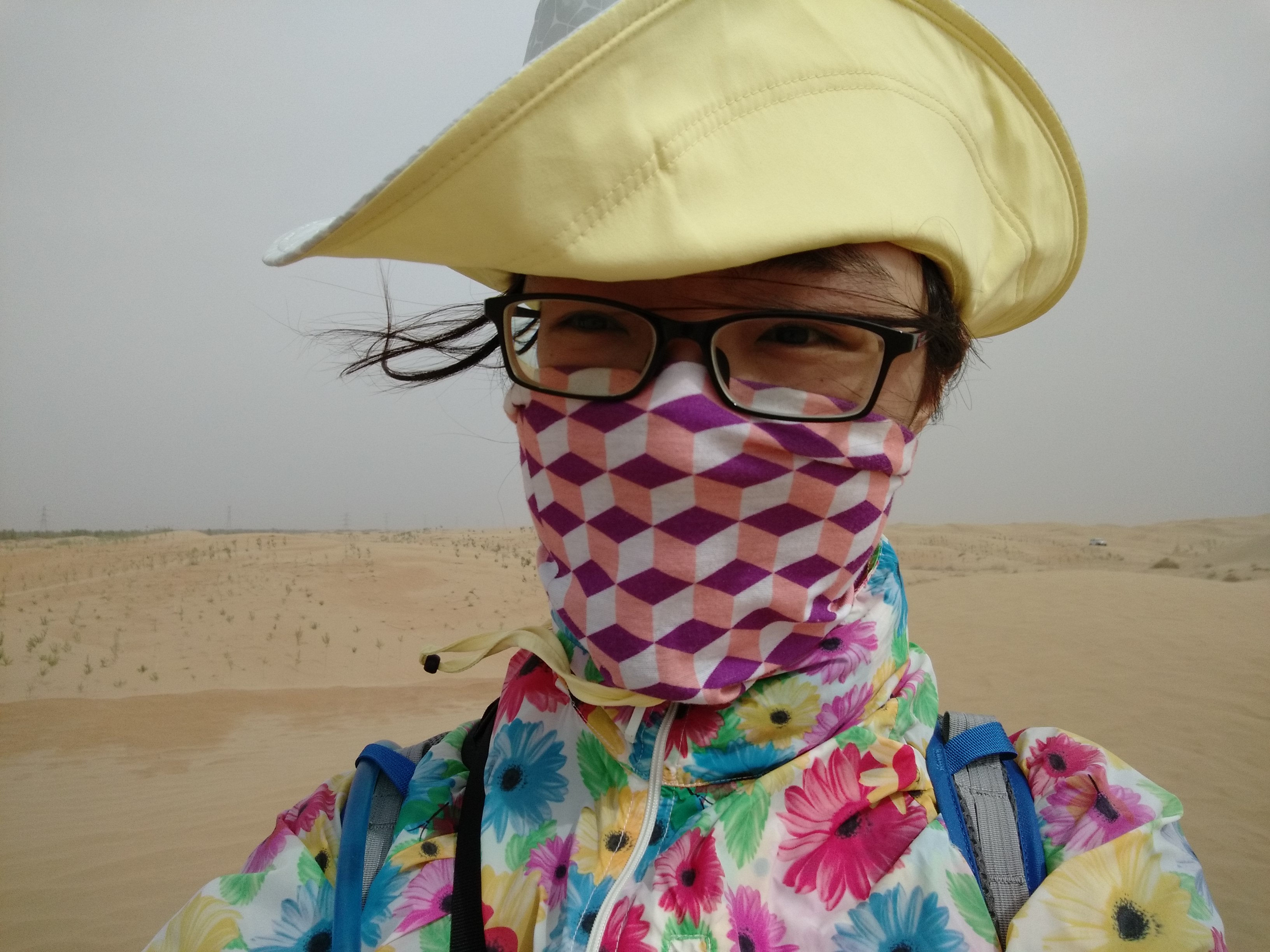
Wind is constant in the desert. It's particularly windy at the top of the sand dunes. It was almost impossible to take out my camera for photos because the sand finds its way into every tiny gap and corner. I could only use my phone occasionally for photos. All of us were fully covered from top to toe, but at the end of day we still find sand under the collars and inside the bags. The eyes are the most at peril in the desert, not only from the sunlight, but also from the sand. There is always a thin layer of sand on my face around the eyes, sticking to the sweat. I had to squint all the way to prevent the sand from drifting into my eyes. My hands were cracking under the heat and dryness and lack of moisturizer.

On the third day the sun came out, and I grew to like walking in the sand and started to have the confidence to take an alternative route from the team. At first it's very difficult, because your feet slip at every step, and you have to exert more effort if you want to walk at the normal speed. But once you get the hang of it, especially when you walk on the back or side of the sand dunes, you automatically know how to adjust the angle of your feet to keep balance, and you fall in love with the softness that meets your sole.
There is nothing much better than making a trail of footprints on an untouched piece of sand. There is only the patterns of waves left by the wind, and you feel that you are the first person in the whole universe to step on that piece of sand. Although it is much easier to walk in other people's footprints in the sand, you still get tempted to go on your own way and make your own marks. The footprints are gone very soon with the fierceness of the wind, and no trace of you will be left, but it doesn't matter. All it matters is that you were there.
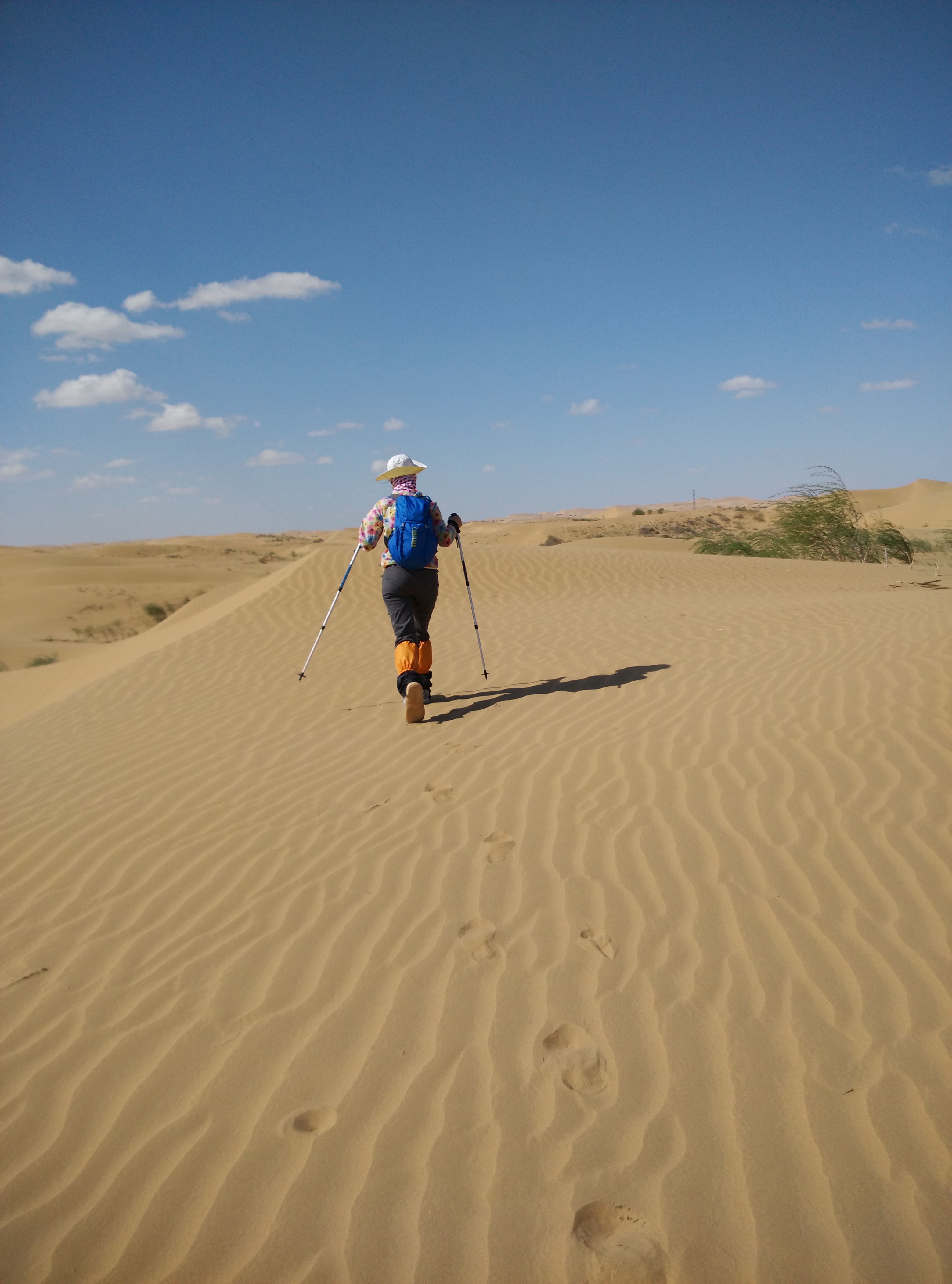
There is nothing much better than making a trail of footprints on an untouched piece of sand. There is only the patterns of waves left by the wind, and you feel that you are the first person in the whole universe to step on that piece of sand. Although it is much easier to walk in other people's footprints in the sand, you still get tempted to go on your own way and make your own marks. The footprints are gone very soon with the fierceness of the wind, and no trace of you will be left, but it doesn't matter. All it matters is that you were there.

Walking down the sand dunes, especially tall ones, is another excitement. You get addicted to it. You walk as if in slow motion, but covering more ground as you go. The trick is to dig your heels deep into the sand and keep the center of gravity at your heels. Once as a group of us walked down the dune together, we accidentally triggered a deep vibration under our feet. The vibration sounded like a deep musical instrument, or a huge wild animal snoring. It is said that only a good combination of certain strength and alignment of walking, moistness of the sand, and other factors can produce this vibration.
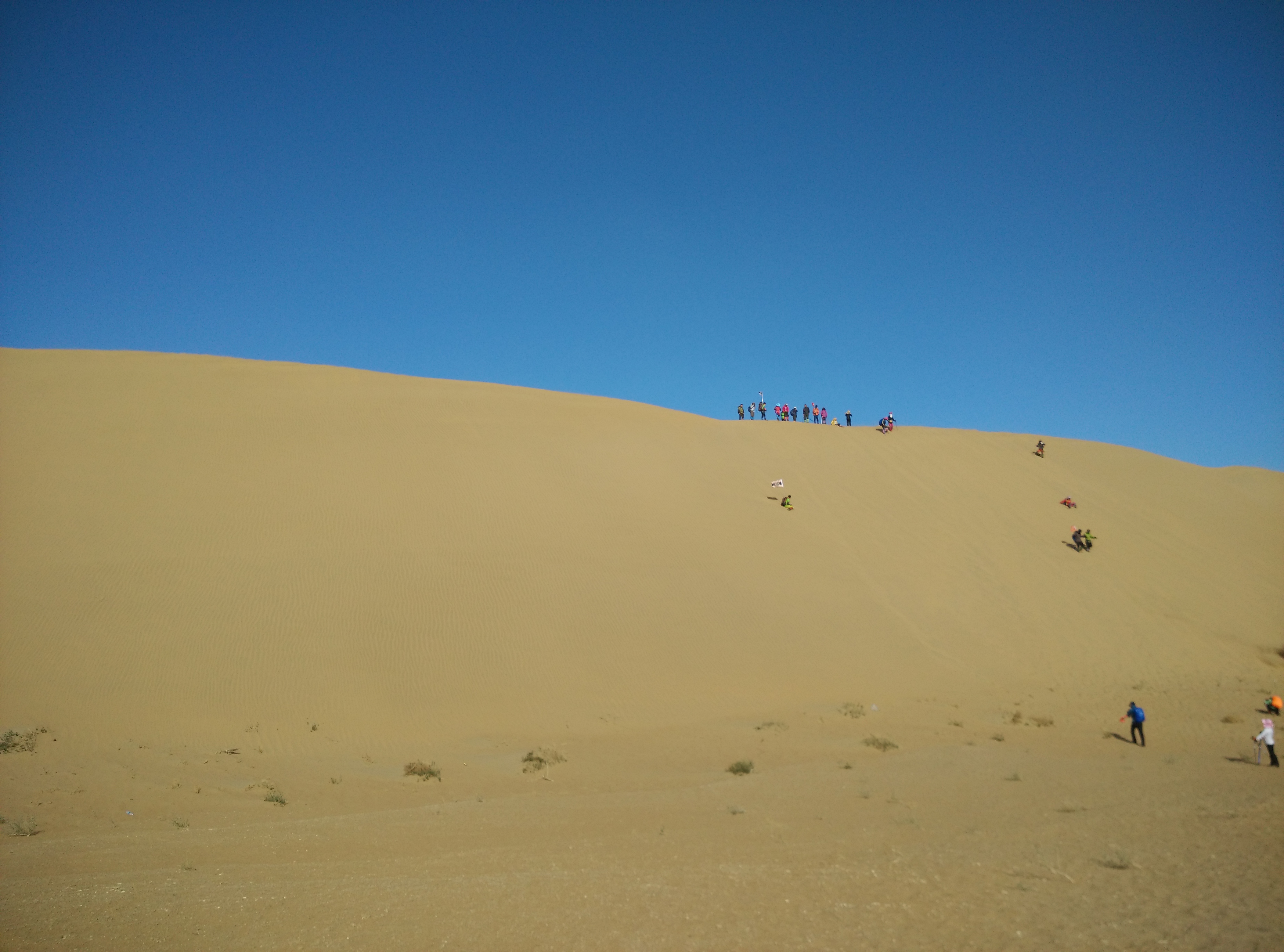

When I stood on the top of a sand dune, looking at the horizon, all I could see were sands around me. It was just the blue sky and the sand, nothing more. The sand dunes rolled on and on, without an end, like a symphony, or a nice tune. I felt like part of the sand, part of the earth. This is what I love about going hiking. I do not feel like this when I'm in the city surrounded by buildings and people. In nature, we become more ourselves, closer to who we are, where we come from. We feel at peace.
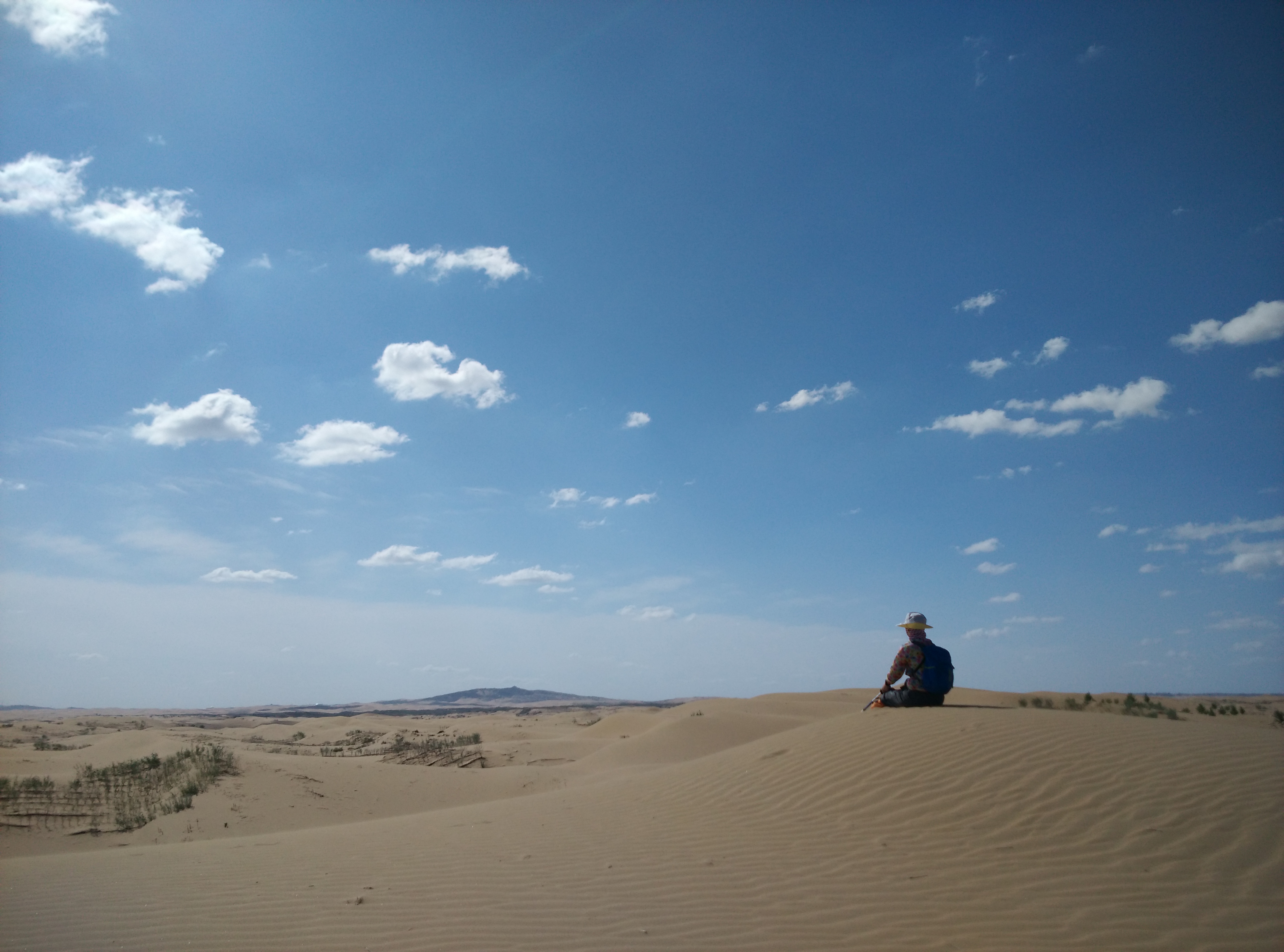

But there was little time and energy for me to think about anything grand and noble. I had to focus on the sand beneath my feet, the direction I'm going, and how I can make a path. I guess the musings and deep thoughts happen afterwards, not on the road. On the road you only think of walking on, and satisfying your basic needs of food and water. The most prominent feeling all the way, was an insatiable thirst, no matter how much and how often I drank. My body and throat yearns for more. I shuddered to think how terrible it is if someone is trapped in the desert without enough water.
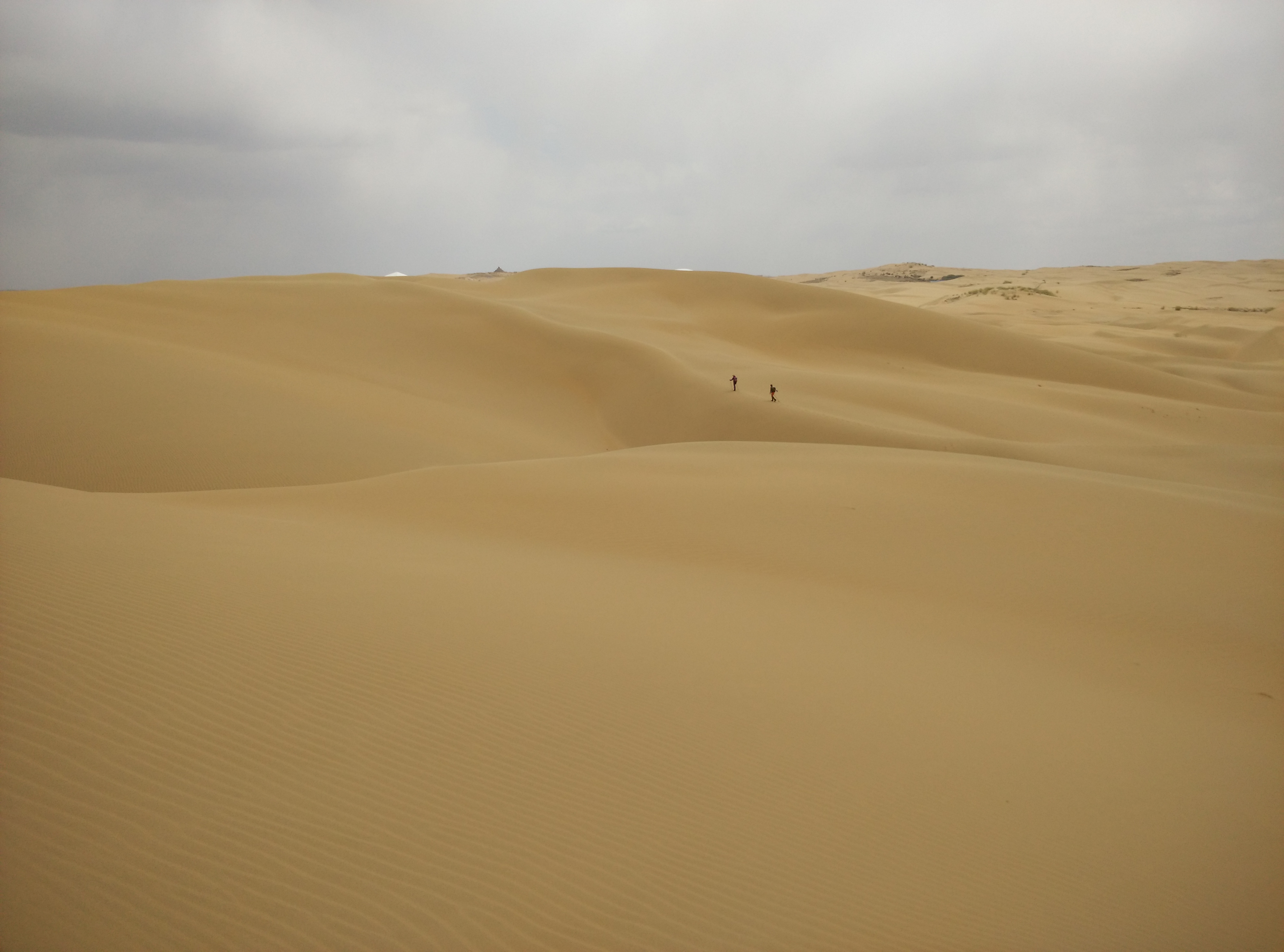

There are few varieties of fruits or vegetables available in the desert. Green leafy vegetables are nowhere to be found. The most common vegetables are tomatoes and cucumbers, and those were almost the only source of vitamin for us during those three days. I can't imagine how people live there with such a short supply of various vegetables and fruits. There is no tap water in the desert. The locals have to drive to certain towns nearby to transport water in big white barrels. Since water is in limited supply, showering is out of the question, and we had to use as little water as possible for washing our faces and brushing teeth. It is sad that what we consider as the most ordinary things in our lives are a luxury to some others.
Even days after I was back from the desert, I could still find traces of sand in my clothes, bags and on the floor. I don't think I would go back to the desert again, but it was a very special experience in my life, and living life means having interesting experiences.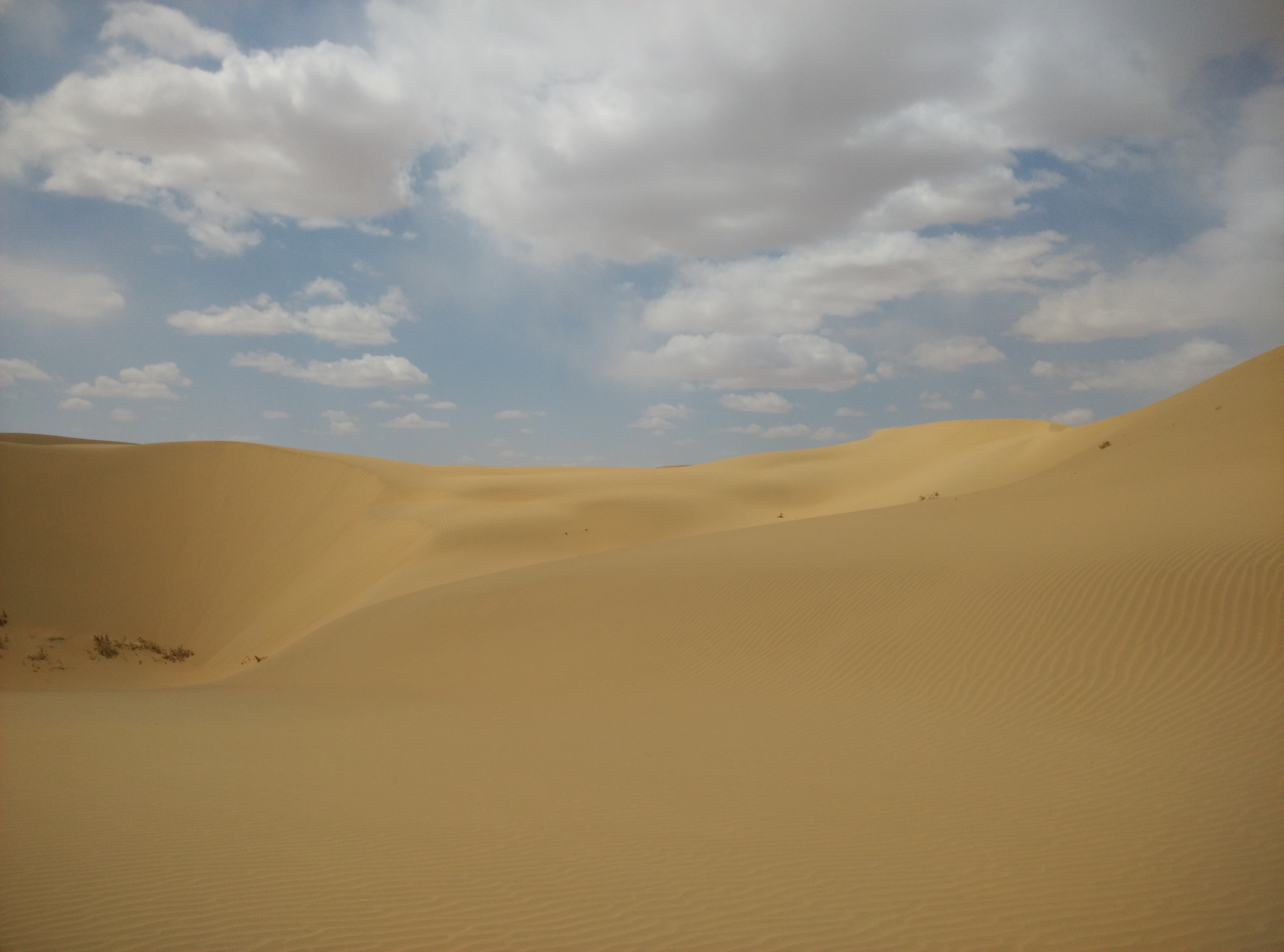
Even days after I was back from the desert, I could still find traces of sand in my clothes, bags and on the floor. I don't think I would go back to the desert again, but it was a very special experience in my life, and living life means having interesting experiences.

(Original work by the author Helen; first published on China Daily blog at 12:30 June 1st, 2016)
About Author: Helen, currently a freelance translator in Shanghai. Loves reading and writing and everything related to languages. If you would like to forward or share this blog, please contact the author at helenriver1414@sina.com







Comment